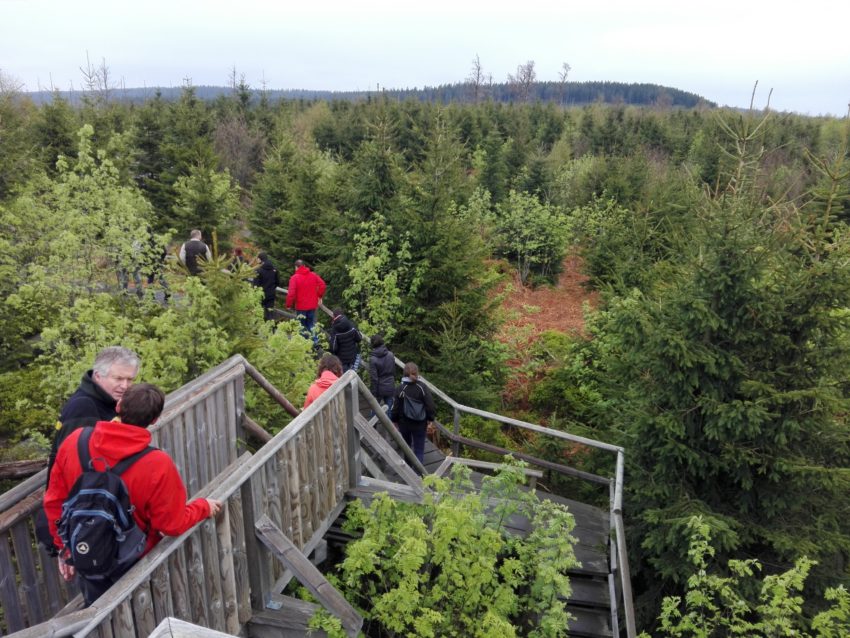Wrapping up the European SIMRA (Social Innovation in Marginalized Rural Areas) project during the state of emergency. What can we say about social innovation now? By Carmen Rodríguez
This post was originally thought to be a wrap-up of the SIMRA project, and summary of what we lived in our SIMRA Final Conference held last February in Brussels. Whereas I will try to stick to this aim, the context in which I am now writing inevitably affects these reflections. I am writing from Spain, where the state of emergency was declared just a few days ago over the coronavirus, placing the country in lockdown (as many other countries in Europe), ordering people to stay at home and with our health-care system bordering collapse due to the numerous infections. Me, as most people, have not been out of the house in 10 days other than for throwing out the trash, and have had little to no physical contact with anybody for several days.
In this context, what was said and not said in the SIMRA Final Conference seems rather irrelevant, next to what is happening right now in the world. However, there are several elements in the social innovation field that connect directly to the crisis that we are living now worldwide, that I do feel relevant to highlight here.
The Final Conference (not only in SIMRA, but also in many other projects) is important for different reasons. It is the moment in which the whole consortium meets for one (sometimes last) time to look back and reflect on the journey. What have we done? How have we done it? What have we learnt? The answer to these particular questions in the frame of the SIMRA project may be found in the various presentations held the 19th of February at the University Foundation in Brussels, and I will avoid going over it again, in order to keep the reader’s attention. There was, however, a main goal overriding this Final Conference, and the main reason why it was held in Brussels, and not in a more rural setting.
The title of the conference explained it quite concisely: “FROM THE IMPLEMENTATION OF LOCAL INITIATIVES TO THE INTEGRATION INTO PUBLIC POLICIES”. Social innovation is important for rural areas, but it will hardly make a difference on its own, if not supported by the appropriate public policies. (More on the SIMRA policy recommendations can be found here).

There are other aspects, however, a lot more subtle, that I only realised now, when I sat down today to think back and reflect on the Conference. By the time we met this past February in Brussels, all those people in the room who were once strangers, were not anymore. We know each other strengths, weaknesses, interests… and depending how you chose your spots in the joint lunch and dinners, you may also know their favourite beer.
In the social innovation field, we call this “reconfiguring of social networks”. People who did not know each other before, with different skills, come together to achieve one particular aim, thus creating new social networks, or reinforcing pre-existing ones. Do not get me wrong; I am not saying that the mere activity of forming a consortium to work in a project constitutes a social innovation per se (you can find out more about social innovation in this blogpost), but merely saying that there are some interesting similarities, which we can learn from.
Looking closely, there are other features quite central in the social innovation studies, that were also visible during our SIMRA Final Conference. Two of the most important ones being the co-construction processes (not one presenter finished his/her presentation without acknowledging several colleagues), and the learning processes (Isn’t doing interdisciplinary research always a learning process, when you have to step out of your own comfort zone and work in a new field and/or with new people?)
Now that we are finishing the project, we find ourselves in an extraordinary situation, locked into our homes, doing everything remotely, and with a strange feeling of isolation that we do not really know how long it will last. And I can’t help but to ask myself: What can social innovation teach us, in a situation like this? Whereas I do not have an answer that is straightforward, there are aspects central to social innovation processes which are now flourishing everywhere, or are at least more visible. The sense of community, for example.
People are striving to strengthen their social networks, including the use of technology available, in order to fight isolation. Artists are offering live concerts from their homes. Museums are offering online free visits, and university students are offering to take care of the kids of those parents who still need to go to work. In my case, I never used to know my neighbours, and now I’m asking them if I can go shopping for them, because they are old and they should avoid going to the supermarket.
Maybe social innovation is always there, somehow. The question is whether we will remember that we have to offer adequate legal and economic support, in order to help it thrive and increase its positive impact in our communities.
Last modified: 6 April 2020











